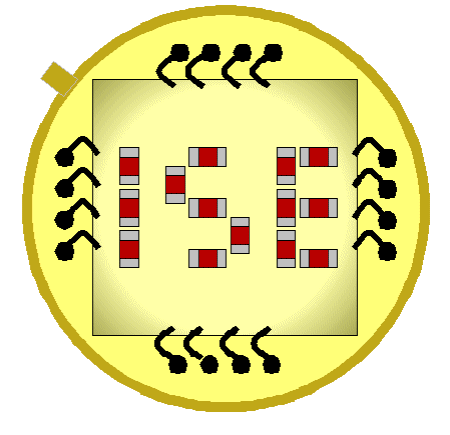
Institute of
Cognitive Integrated Sensor Systems
Prof. Dr.-Ing. Andreas König

Contributions to the Development of Advanced Knock Detection Methods in Gasoline Engines
Subject:
The research study in a cooperation with Robert Bosch GmbH had the objective to employ advanced techniques from computational intelligence for data analysis, pattern recogntion, and optimization on real-world data from gasoline combustion engines to advance knock detection. In particular, this includes also the inclusion of ISE-experience on data visualization, analysis, and accelerating and automating of the design of such intelligent systems adapted to that specific automotive domain.

Abstract:
Knock detection (KD) is an established and industrially relevant field. It is an interesting case, where available and suitable sensors, e.g., pressure sensors, are too expensive for large volume production and somewhat harder to evaluate but economically priced sensors, e.g., acoustic transducers, have to be applied in conjunction with elaborate evaluation techniques. Pressure sensor in ignition valve (left), knock sensor (right) (Courtesy Bosch):

Proven signal processing methods, e.g., based on filtering, rectifying, and integrating as well as judicious thresholding have been applied. Increasing challenges with regard to, e.g., fuel efficiency, emissions limitation, higher power density etc. aggravate the requirements on the applied methods and potential hardware embodiment. Thus, methods from computational intelligence or soft-computing field, in particular non-linear and supervised approaches, are attractive to investigate for achieving advances with regard to robustness and discrimination ability for more dependable systems. Support-Vector-Machines (SVM), SVM regression, as well as Radial-Basis-Function-Networks (RBF) are promising candidates for the investigation. This is exemplified in the following figure from raw data to domain specific correlation plot a output:

Preprocessing of the raw data from engines includes filtering, fast fourier transform, and spectral filtering. Application of automated feature selection and automated parameter determination was also investigated in the context of the study. The following picture outlines the flow of the conducted experiments and evaluation based on several three and eight cylinder engines:


.jpg)

This relates to the overall pursued research and tool architecture for automated intelligent system design as follows:



More details on the extensive investigations and simulations can, again, be found in the reports enlisted below.
The excellent cooperation with the head of the Bosch group Dipl.-Ing. Robert Sloboda, and his group members, in particular, Dipl.-Ing. Stefan Kempf, is gratefully acknowledged.
The research activitiy is currently continued by an external PhD project of Dipl.-Ing. Matthias Biehl at Bosch in the same business unit.
| Status: | concluded, duration 03/2007-04/2009, external doctoral project based on this project running from 2010-2013 (expected end) | ||
| Contractor: | Robert Bosch GmbH, Diesel Gasoline Systems Business Unit, Schwieberdingen. | ||
| Financing: | Robert Bosch GmbH, Diesel Gasoline Systems Business Unit, Schwieberdingen. | ||
| Contact: | Prof. Dr.-Ing. Andreas König | ||
| Contributors: | Kuncup Iswandy and Andreas König | ||
| Publications: | |||
K. Iswandy, S. Kempf, R. Sloboda, and A. König. Robustness Investigation of A SVM-Based Knock Detection Method. In Motortechnische Zeitschrift (MTZ), 7-8/2010, Vol. 71, pp. 486-491.
|
|||
| K. Iswandy and A. König. Hybrid Virtual Sensor Based on RBFN or SVR Compared for An Embedded Application. In Proc. of the 15th Ann. Conf. on Knowledge-Based and Intelligent Information & Engineering Systems (KES 2011), Kaiserlautern, Sept. 12-14, Springer, LNAI 6881, Part. II, pp. 333-342, 2011. | |||
| M. Biehl, S. Kempf und A. König. Messtechnische Hardwareplattform zur Entwicklung neuer Motorsteuergeräte-Algorithmen und -Funktionen am Beispiel der Kloperkennung. In: Tagungsband des XXV Messtechnischen Symposiums des AHMT, S. 39-50, Karlsruhe, September, 2011. ISBN 978-3-8440-0388-8 |